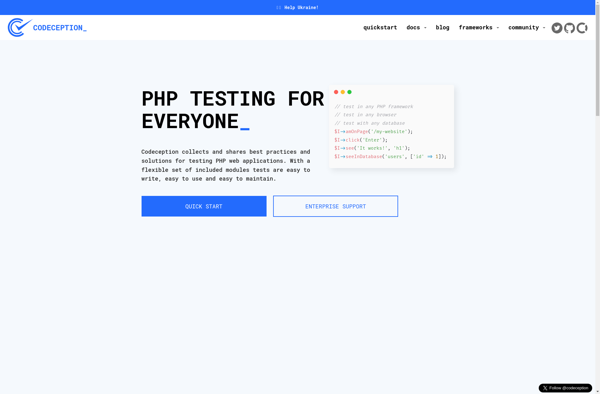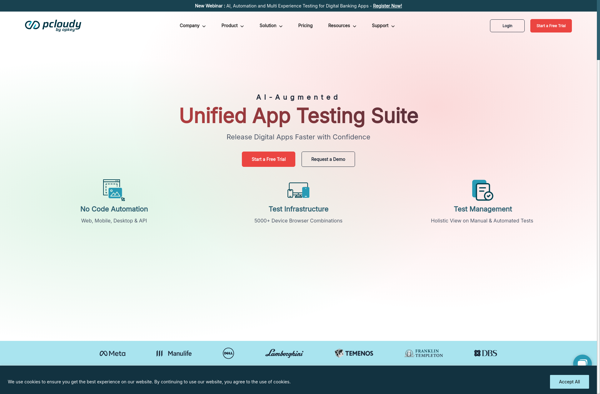Description: Codeception is an open-source PHP testing framework that allows you to write acceptance, functional, integration, and unit tests for your web applications. It provides an intuitive interface and powerful tools to make testing PHP applications easier and faster.
Type: Open Source Test Automation Framework
Founded: 2011
Primary Use: Mobile app testing automation
Supported Platforms: iOS, Android, Windows
Description: pCloudy is a cloud-based test automation platform that allows users to test mobile and web apps on thousands of real devices hosted in the cloud. It supports manual and automated testing and provides integration with CI/CD pipelines.
Type: Cloud-based Test Automation Platform
Founded: 2015
Primary Use: Web, mobile, and API testing
Supported Platforms: Web, iOS, Android, API

